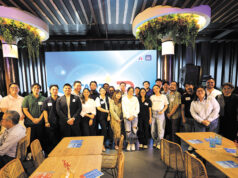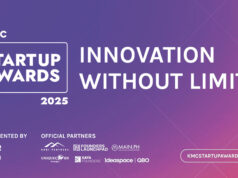It’s 2017, soon to be 2018. When we here at SparkUp talk about unicorns, we don’t mean a pretty horse with a singular horn on its forehead, beard of a goat and tail of a lion like in ancient heraldry. We sometimes mean the watered down pop culture version of that creature which leaves a trail of rainbows and glitters in its wake. But what we usually mean is—
“A start‑up based on a WTF idea that’s disrupting competitive markets that are headed by angas founders.”
Such was put into words by Natasha Bautista, Operations Head of the innovation hub QBO Philippines and former vice president for marketing of GrabTaxi. (More on how she brought the app we now couldn’t live without in the Philippines in an exclusive video with SparkUp.) She, with Qwikwire’s Ray Refundo and Voyager Innovation’s Dindo Marzan, was a speaker in the latest Spark Series of talks, held by SparkUp at the UP School of Economics last October 25.
“A startup is a potential high scalable project working to solve a problem where the solution isn’t obvious,” she defined in turn. The problem solving part is crucial to the definition. According to her, small businesses that eventually turned massive like Jollibee, or the growing network of internet shops under one name like Minesky don’t really count as startups, since they don’t really solve problems in a way that hasn’t been done before. Still, they’re really good businesses.
The Philippines, Bautista said, could be a breeding ground for not just startups, but unicorns. “In 2015 we had 100 startups, I think by 2020 we could have a thousand startups,” she said. And that could grow not only because of QBO, but also because of government support.
“How do you breed more unicorns? In QBO, we encourage Qllaboration and develop the Qmmunity,” Bautista said. (Also QBO, which is not an acronym of anything, is pronounced “kubo” like the Filipino nipa house, which is why the word play makes sense.) By having a place where startups can talk and learn from each other, they end up supporting and strengthening each other too. If QBO is the bahay kubo, it’s Qmmunity is the bayanihan, lifting each other up on times of need.
QBO itself was made from a collaboration between the Department of Trade and Industry (DTI) and the IdeaSpace Foundation of First Pacific Company Limited early last year. The Senate just passed on May 2017 the Philippine Innovation Act to strengthen the development of startups. And according to Bautista, startups can tap into the many grants that the Department of Science and Technology (DOST) are willing to provide.
That’s just groundwork, so far. The government can still do so many things to improve the breeding ground for the Filipino unicorn. “The government could lower the barriers to entry and encourage stakeholders to be a part of this startup initiative. The government can also help educate everyone on startups,” she said. Some investors might be wary in putting their money in startups, since there’s a lot of risk involved, but Bautista assures that the rewards in investing in a successful start-up could be very high. Just look at how big transportation network companies (TNCs) Grab and Uber are. It’s hard to imagine life without them now.
“I think the next unicorn would be from Ed(ucation)Tech, AgriTech or FinTech,” Bautista predicted, concluding her talk. Will that unicorn be yours? We hope so. -Lucia de Guzman



